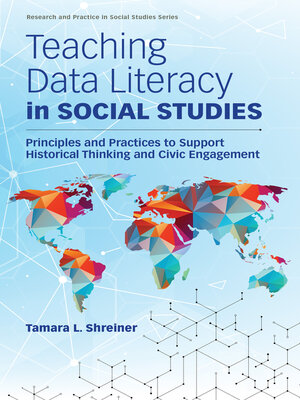Teaching Data Literacy in Social Studies
ebook ∣ Principles and Practices to Support Historical Thinking and Civic Engagement · Research and Practice in Social Studies
By Tamara L. Shreiner

Sign up to save your library
With an OverDrive account, you can save your favorite libraries for at-a-glance information about availability. Find out more about OverDrive accounts.
Find this title in Libby, the library reading app by OverDrive.



Search for a digital library with this title
Title found at these libraries:
| Library Name | Distance |
|---|---|
| Loading... |
We are surrounded by data and data visualizations in our everyday lives. To help ensure that students can critically evaluate data—and use it to promote social justice—this book outlines principles and practices for teaching data literacy as part of social studies education. The author shows how social studies content and skills can enhance data literacy, and its importance in supporting students' historical thinking and civic engagement. Shreiner also provides a rationale for including data literacy in the social studies curriculum and highlights the special knowledge and skills social studies teachers offer in promoting a critical, humanistic form of data literacy. Recognizing that many social studies teachers feel poorly equipped to teach data literacy, this book offers practical advice, summaries of the benefits and challenges to students, guidance for incorporating data literacy across elementary and secondary grades, and strategies to help students analyze, use, and create data visualizations.
"This important book provides many practical suggestions and powerful visual examples built on sound research that will support educators as they continue to find new ways to integrate data literacy in their history, civics, geography, economics, and other social science classrooms and beyond." –Christopher C. Martell, associate professor, University of Massachusetts Boston
"Shreiner demonstrates how we use data visualizations to understand and construct arguments about the world around us and provides concrete ideas for how to approach teaching it in social studies classrooms. This book makes teaching data literacy feel relevant, urgent, and—most importantly—doable." –Sarah McGrew, assistant professor, University of Maryland







